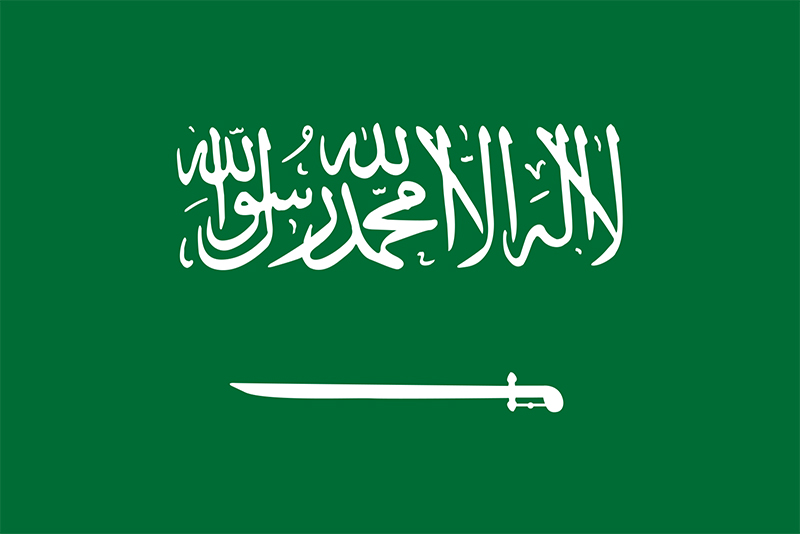The circumstances surrounding the rise of Prince Mohammad bin Salman (MBS) as the Crown Prince of Saudi Arabia have brought the dynamics of the palace power struggle in the monarchy to the fore.
The Saudi ruling dynasty Al-Saud is currently the most powerful ruling dynasty in the world considering the sheer religious, economic and geopolitical significance of the domain it rules over without being subject to any authority. The dynasty founded the kingdom. It had, at two separate points in history, founded two emirates in its native Najd region. The first was in 1774 when Mohammad bin Saud and an Islamic scholar-revivalist Sheikh Mohammad bin AbdulWahhab co-founded the Emirate of Diriyah, which lasted until 1818.
The second was in 1824 when a grandson of bin Saud, Turki bin Abdullah restored the Al Saud reign and founded the Emirate of Najd, which, however, also collapsed in 1891. Yet, 11 years later, Abdul-Aziz bin Abdurrahman Al Saud managed to reclaim it and kept expanding it until he founded the Kingdom of Saudi Arabia in 1932.
Interestingly, the ibn Saud-ibn AbdulWahhab alliance has grown into a kind of intergenerational kinship between their descendants i.e. Al Saud and Al Ash-Sheikh. The former has kept the kingship while the latter has kept the symbolic scholarly authority in the kingdom. Al Saud means the descendants of ibn Saud while Al Ash-Sheikh means the descendants of ibn AbdulWahhab. The current Grand Mufti of the Kingdom, Sheikh Abdul-Aziz bin Abdullah Al Ash-Sheikh is a lineal descendent of ibn AbdulWahhab.
Anyway, over the course of Abdul-Aziz’s struggle before and after he founded the kingdom, he kept marrying daughters of Arab tribal chiefs and influential tribal figures to secure the unwavering loyalty of the unpredictable Arab tribes without which he couldn’t have achieved his mission. He was said to have married more than 20 women, of course, maintaining not more than four at once; and had more than 60 children.
As is the case with all ruling dynasties, wings and individuals among King Abdul-Aziz’s lineage have always been locked in the palace power struggle over positions of influence including kingship. Wings within the dynasty have always developed based on shared maternal backgrounds among his children whose mothers came from different Arab tribes. A wing’s influence is primarily determined by the mother’s tribal, clannish or familial influence.
The most influential wing is the Sudairi wing generally and the Sudairi Seven particularly. Their mother, Hassa bint Ahmad As-Sudairi was widely believed to be King Abdul-Aziz’s favoured wife. Her children were equally the most influential particularly the Sudairi Seven who formed a clique of extremely rich princes with networks of highly influential connections within and outside the kingdom. They were Fahd, Sultan, Abdurrahman, Naif, Turki-ath-Thani, Ahmad and Salman, the current king.
However, things began to change following the death of King Fahd and the ascension of the then Crown Prince Abdullah bin Abdul-Aziz to the throne in 2005. Abdullah wasn’t a Sudairi; he was the only male child of his mother; he was, however, very influential within the country’s elite National Guard force, which was responsible for protecting the ruling dynasty. His appointment as the Crown Prince despite his relative disadvantage was seen as a tactical move by King Fahd to preserve the intactness of the Guard’s loyalty and Abdullah’s knowing that, barring any unforeseen circumstances, his turn would come in due course.
No sooner had Abdullah settled on the throne than he embarked on subtle but obvious moves to promote his own family at the expense of the Sudairis. He appointed some of his children to some very important positions, and though he reluctantly appointed a Sudairi, Sultan as the Crown Prince, he relieved a number of them from important positions.
He also created a whole new position, the Deputy Crown Prince, to which he appointed Muqrin bin Abdul-Aziz who was supposed to become the Crown Prince once the latter’s position became vacant for whatever reason. Like Abdullah, Muqrin was the only son of his Yemeni mother hence equally considered relatively less advantaged. It was alleged that the plan was to somehow get Abdullah’s son, Mut’ib appointed the Deputy Crown Prince once King Abdullah passed away and Salman became King while Muqrin became the Crown Prince. That way Abdullah’s wing would be in a position to compete favourably with other wings for kingship. Consequently, the Sudairis influence diminished considerably during Abdullah’s reign.
However, things never went as the Abdullah wing had planned because no sooner had Salman become King following Abdullah’s death than he equally relieved many of those Abdullah had appointed to various important positions including his sons. He also relieved Muqrin as the Deputy Crown Prince, appointed his nephew Mohammad bin Naif and his son Mohammad bin Salman the Crown Prince and the Deputy Crown Prince respectively. Likewise, other Sudairis were appointed or reappointed to various top positions in the kingdom.
Moreover, two years later he abolished the position of the Deputy Crown Prince, and elevated his son Mohammad bin Salam to the Crown Prince who has since then acted as the de facto King.
Since then the power struggle has been within the Sudairi wing exclusively, especially between the Salman sub-wing, the Sultan sub-wing, and the Naif sub-wing from where the deposed Crown Prince Mohammad bin Naif comes. Many including some highly influential Sudairis have been relieved of their positions. Those who are rightly or wrongly perceived to be harbouring resentment against MBS are being persecuted; many have been imprisoned including bin Naif himself while others have fled the country.

 Join Daily Trust WhatsApp Community For Quick Access To News and Happenings Around You.
Join Daily Trust WhatsApp Community For Quick Access To News and Happenings Around You.

